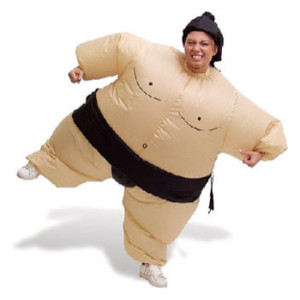We’ll have to see if an actual conversation develops with Zondervan and the creators of Deadly Viper, but I thought it a bit ironic that part of the online conversation started out on the Deadly Viper blog on a post about saying “I’m sorry”.
It’s the “I’m sorry but that’s not what I meant” or the “I’m sorry if you were offended but that’s not what I meant” that hooks me. It’s not an apology. A comment like that teases me into believing we are going to move forward together, as painful as that might be, but then it goes nowhere fast.
Recently I came across a situation where that could have happened. And it didn’t. (UPDATED WITH DETAILS NOW) I’ll update this post with more details as soon as I have permission from those involved, but in the meantime I’ll paint a picture of what a genuine apology can do to move the body of Christ forward in conversations about race, ethnicity, leadership, integrity and mission.
We get a ton of prayer letters and ministry update/reports from various missionaries, mission organizations, Christian groups, etc. and we enjoy reading them and praying about the things we read about. But one photo in Harbor Point Ministries – the newsletter for Covenant Point and Covenant Harbor Bible Camps – caught my eye. It was a photo of a young man and young woman wearing those inflatable sumo wrestler costumes. Ugh. My initial reaction was one of anger and sadness, and then I replayed a common conversation in my head – Was I being too sensitive? Was I being too reactionary? Maybe I should let this one go?
I started an e-mail, but I let it sit. I read the e-mail and while I thought I was making my points I did not like my tone, or, at the very least, how my tone could have been read. I wanted to be understood in hopes of inviting conversation not just to make a point. The e-mail is still in my draft box because life got in the way.
But at someone’s urging, I shared my concern publicly at a Sunday School class I was leading on multiculturalism at my church, Libertyville Covenant Church, as an illustration of how different people with different life experiences will see things with a different lens and to open up a conversation about how different people may have viewed that same photograph and had completely different responses. I shared about my hesitation to say something because it can be exhausting to be “that” person all the time. I shared how my children all have had wonderful experiences at both Bible camps, but I was mortified at the thought of kids roaring in laughter over the “fat costume”. Someone listened.
Monday afternoon as the boys were getting settled in after homework and hangout time, I received a phone call. I did not recognize the name or number, but I picked up and was floored.
“Hi, Kathy. This is Dave Auker and I owe you and others an apology. I am so sorry. I am in charge of that publication and I take full responsibility.”
It was a brief conversation about the Evangelical Covenant Church’s efforts to better understand diversity and the ramifications of a photograph like the one with inflatable sumo wrestler costumes. What stuck with me was that the person in charge called, apologized, took responsibility, asked if I had questions and gave me some helpful information that I planned to bring to a phone conversation I wanted to make to the director of the camp.
And then all this Deadly Viper exploded.
Wednesday afternoon I got another call. Ray Warren, executive director of Covenant Harbor Bible Camp & Retreat Center, was on the line.
“Kathy, I want to express our apologies. We’re terribly sorry for the offense and we want to learn from this. How can we be best positioned to welcome with open arms the growing church? Could you come talk to the the staff?”
I am humbled and energized. The past four days have been incredibly draining. I have felt empty as I lean into God’s truth to find voice as a Christian who is also an Asian American woman. We are one in Christ, carrying faith and life through the lens of culture, age, race, gender, socioeconomic status. We all make mistakes. We all do things that result in a different outcome than intended. We are broken people living in a broken world. But those two phonecalls reminded me leaders continue to learn, sometimes painfully, from others and from their mistakes. I long to be transformed into that kind of leader.
If Deadly Viper needs any more examples of leadership and character, take note. This should be one of them.
